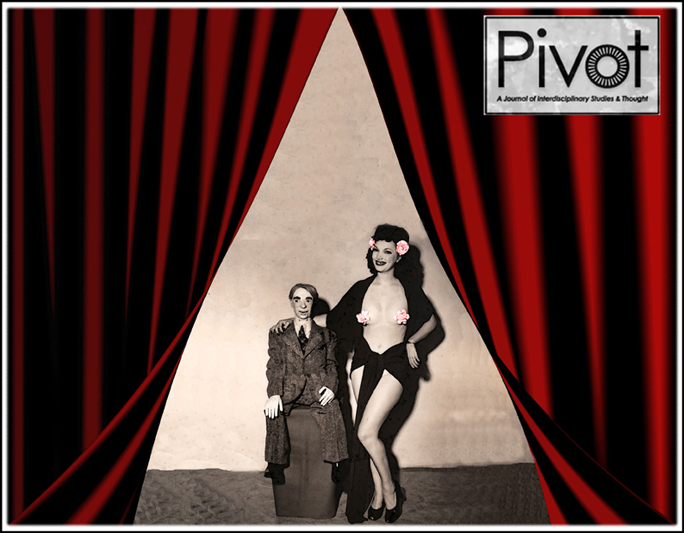Pushing Boundaries and Exploring Limits: Ami McKay’s The Birth House as (Hys)torical Fiction
DOI:
https://doi.org/10.25071/2369-7326.34713Abstract
This chapter examines the structural and political devices of postmodern historiographic metafiction and the use of humorous fiction about childbirth as a counter-historical practice. I argue that while The Birth House operates as a form of historical fiction, author Ami McKay’s primary goal is to draw attention to Euro-Canadian notions of morality and the so-called medically sound infallibility of science through representations of the grotesque. What type of book is The Birth House and how does it fit in to Canadian literary tradition? I propose that The Birth House provides a space in which McKay uses binary oppositions to argue for the promotion of midwifery, holistic birthing, and the reclamation of the feminist body through mothering. Through historical fiction, McKay unpacks historic discourse by suggesting that the inscription of a woman, a midwife no less, into turn of the twentieth century narrative disrupts the national myths of medical and scientific progress.References
Bakhtin, Mikhail. Rabelais and His World. Trans. Hélène Iswolsky. Bloomington, Indiana: Indiana UP, 1984. Print.
Bourrier-LaCroix, Barbara. Rev. of The Birth House, by Ami McKay. Canadian Women’s Health Network 9.1-2 (Winter 2006-07): 26. Print.
Brophy, Sarah. “Women, Aging, and Gossip in Lady Mary Wortley Montagu’s Letters of the 1720s.” The Eighteenth Century 45.1 (2004): 1-20. Print.
Brophy, Sarah. Personal communication, 22 August, 2011. Print.
Carter, Shannon. “Gender and Childbirthing Experiences: Revisiting O’Brien’s Dialectics of Reproduction.” NWSA Journal 2.1-2 (Summer 2009): 121-143. Print.
Fuss, Diana. Essentially Speaking: Feminism, Nature, and Difference. New York: Routledge, 1989. Print.
Gittings, Christopher. “A Collision of Discourse: Postmodernisms and Postcolonialisms in The Biggest Modern Woman of the World.” Journal of Commonwealth Literature 24.1 (1994): 81-91. Print. DOI: https://doi.org/10.1177/002198949402900108
Helm, Richard. “Birthing Novel Has Borne Fruit.” Rev. of The Birth House, by Ami McKay. Edmonton Journal March 19, 2007, final ed: B.1.FRO. Web. 7 Aug 2010.
Holquist, Michael. “Prologue.” Rabelais and His World. By Mikhail Bakhtin. Transl. Hélène Iswolsky. Bloomington, Indiana: Indiana UP, 1984. xiii-xxiii. Print. Hutcheon, Linda. The Canadian Postmodern: A Study of Contemporary English Canadian Fiction. Toronto: Oxford UP, 1988. Print.
Inglis, David. Culture and Everyday Life. London & New York: Routledge, 2005. Print. DOI: https://doi.org/10.4324/9780203005200
Johnson, Sarah. Rev. of The Birth House, by Ami McKay. Booklist September 1, 2006: 57. Print.
Kamboureli, Smaro. “The Biggest Modern Woman of the World: Canada as Absent Spouse.” Studies in Canadian Literature 16.2 (1991): n.p. Web. 6 Oct 2010.
Kristeva, Julia. The Powers of Horror: An Essay on Abjection. Trans. Leon S. Roudiez. New York: Columbia UP, 1982. Print.
Kristeva, Julia. “Word, Dialogue and Novel.” The Kristeva Reader. Ed. Toril Moi. New York: Columbia UP, 1986. 34-61. Print.
Lachman, Renate. “Bakhtin and Carnival: Culture as Counter-Culture.” Transl. Raoul Eschelman and Marc Davis. Cultural Critique 11 (Winter 1988-89): 115-152. Print. DOI: https://doi.org/10.2307/1354246
Lukacs, Georg. The Historical Novel. Introduction by Fredric Jameson. Lincoln and London: U of Nebraska P, 1983. Print.
McKay, Ami. The Birth House. Toronto: Vintage Canada, 2007. Print.
Maines, Rachel P. The Technology of Orgasm: “Hysteria,” the Vibrator, and Female Sexual Satisfaction. Baltimore, MD: Johns Hopkins UP, 1999. Web. 26 Oct 2010.
Miller, Nancy K. Getting Personal: Feminist Occasions and Other Autobiographical Acts. New York: Routledge, 1991. Print.
Minogue, Sally, and Andrew Palmer. “Confronting the Abject: Women and Dead Babies in Modern English Fiction.” Journal of Modern Literature 29.3 (July 2006): 103-125. Print. DOI: https://doi.org/10.1353/jml.2006.0032
Mitchinson, Wendy. Giving Birth in Canada: 1900-1950. Toronto: U of Toronto P, 2002. Print.
Moi, Toril. Sexual Textual Politics: Feminist Literary Theory. London and New York: Routledge, 1985. Print.
O’Brien, Mary. The Politics of Reproduction. Boston: Routledge and Kegan Paul, 1981. Print.
Schildrick, Margrit. Embodying the Monster: Encounters with the Vulnerable Self. London and California: Sage Publications, 2002. Print.
Swan, Susan. The Biggest Modern Woman of the World. Toronto: Lester & Orpen Dennys, 2001. Print.
Wylie, Herb. Speculative Fictions: Contemporary Canadian Novelists and the Writing of History. Montreal & Kingston: McGill-Queen’s UP, 2007. Print.


